Mahvash Nikjoo was born in 1936 into a Baha'i family in Tehran. Her father, Zabihullah Nikjoo, was studying law when Mahvash was born. Zabihullah was part of the first group of graduates from the Law School of Tehran University. Following the completion of Zabihullah's studies, the Nikjoo family relocated to the northeastern city of Mashhad.
Mahvash Nikjoo received her primary education in Tehran and continued her secondary education in Mashhad. After obtaining her diploma in history and geography, she pursued higher education at Ferdowsi University's Faculty of Literature. Nikjoo also received the prestigious Imperial Scholarship and was offered the opportunity to study abroad in the United States.
Teaching at Ferdowsi University of Mashhad
After completing her PhD in history from Indiana's Bloomington University, Nikjoo returned to Iran and joined the Faculty of Literature at Ferdowsi University. She began her academic career as an assistant professor and later became an associate professor in the same department.
In 1964, the Department of History was established as an independent entity, separating from geography within the Faculty of Literature at Ferdowsi University of Mashhad.
Nikjoo was among the first professors to teach in this newly formed department.
One of Nikjoo's early students, Naqi Lotfi, recounted his memories of that time in his book. Lotfi mentioned that during those initial years, the number of students in the history department was small, and only a limited number of students were admitted, based on their grade point averages. In fact only one student was admitted at one point.
"Similar situations were observed in other academic groups as well,” Lotfi wrote. “Later, the government and education officials realized that dedicating an entire academic course for only one student did not align with the needs of the system, particularly when high schools required more teachers and graduates.
"During that time, Dr. Hossein Qoli Moveidi served as the director of the history department. Alongside him, there was a female teacher named Nikjoo, and later, more professors were recruited, including Wahab Vali, who came from Tehran and held a doctorate from Turkey."
Nikjoo was known for her organized and serious demeanor in the classroom. She adopted the pamphlet writing method, common in American universities at that time, where course materials were presented to students in the form of textbooks.
From 1969 to 1986, Nikjoo served as the director of the Department of History at Ferdowsi University of Mashhad, making her the first woman to hold such a position in the fields of history and geography at the university.
Between 1974 and 1977, Nikjo0 traveled to the United States on multiple occasions. There, she conducted research and taught as a Fulbright professor at Indiana University.
However, after the 1979 Islamic Revolution in Iran, Nikjoo chose to forego the Fulbright scholarship and continued her teaching career at the Faculty of History of Mashhad University.
But being a Baha'i woman without hijab in a religiously conservative city like Mashhad, which was under the influence of Ayatollah Hadi Milani, who was close to Ruhollah Khomeini, the founder of the Islamic Republic, posed significant challenges for Nikjo0.
Several influential religious figures in the city worked against the Baha'i community during that period, which created difficulties for Nikjoo in her role as a professor and department manager.
Rasoul Jafarian, in his book Religious and Political Fronts and Organizations of Iran, mentions three other prominent religious figures, Mohammed Taghi Shariati, founder of the Center for Islamic Publishing, Mahmoud Halabi, leader of the Hojjatiye Association, and Ali Asghar Abedzadeh, the founder of Mahdieh Association, who played significant roles in the anti-Baha'i sentiments prevailing in Mashhad during that time.
Dismissed from the university and incarcerated
With the establishment of the Islamic government in Iran, the Islamists in Mashhad seized the opportunity to prevent Nikjoo from teaching at Ferdowsi University. Despite the chance to teach at Bloomington University in Indiana, Nikjoo had decided to remain in Iran and continue teaching at the history faculty of Ferdowsi University
Nikjoo was soon banned from teaching and expelled from the university because of her Baha’i beliefs. But this was not enough for the Islamist revolutionaries. Determined to exact revenge on Nikjoo for not bowing to their pressures over the years, they seized power and targeted her, and in 1980 Nikjoo was arrested on charges of insulting Mohammed Taghi Shariati (the father of Ali Shariati), based on the testimonies of two students.
She was then subjected to a trial in the Mashhad Revolutionary Court, falsely accused of cooperating with deposed Shah’s intelligence and security service, SAVAK, in an alleged effort to expel Ali Shariati from Ferdowsi University.
Nikjoo was the first woman in Mashhad to be tried in the Revolutionary Court, and her trial was broadcast live on local radio. No evidence was presented in court regarding her alleged connection with SAVAK, and the verdict was based only on the testimonies of several hardline students.
Nikjoo and the potato chip factory
Nikjoo was granted amnesty and released after serving a year and a half in Vakil Abad prison in Mashhad. Following her release, she and her husband established a potato chip factory, providing employment opportunities to Baha'is who had been dismissed from government positions.
Nikjoo's husband held a bachelor's degree in philosophy and had previously worked as a teacher. He had a cotton ginning factory near Mashhad, which was confiscated by the Revolutionary Court.
In 1987, Nikjoo suffered a heart attack that left her unable to continue working. From that point onwards, she devoted her time to studying and teaching Baha'is who had been deprived of access to university education.
Despite facing numerous challenges, she remained committed to supporting and empowering the Baha'i community during a time of significant adversity.
Teaching at the Baha'i Institute for Higher Education
Despite being expelled from university, Nikjoo's passion for teaching and imparting knowledge to others never waned. In the early 1980s, she conducted general history classes for Baha'is who were deprived of educational opportunities. These classes were held in the houses of Baha'is in Mashhad.
When the Baha'i Institute for Higher Education, BIHE, was established, Nikjoo eagerly joined this institution. She took charge of teaching the history course and even compiled a pamphlet specifically for this educational institution.
Since 1980, the entry of Baha'is into the country's universities and higher education institutions has been prohibited.
The Baha'i Institute for Higher Education was founded as an initiative by the leaders of the Baha'i community in Iran. The aim was to provide university-level education to young people who were denied access to higher education due to their faith. The institution began with a limited number of fields, but over time, new university disciplines were added to its curriculum.
In 2001, Persian literature was incorporated into the range of study areas offered by BIHE. Nikjoo played a pivotal role as a member of the Persian Literature Council, contributing her vast experience and knowledge to the establishment of this field.
At this point, she was teaching Iranian history, historical geography, and religious history. Additionally, in 2005, the BIHE introduced a course named Middle East Studies, in which Nikjoo actively participated as both a lecturer and a designer of the course. She also offered courses to sociology students.
In the winter of 1991, Nikjoo was summoned and interrogated by the Mashhad Intelligence Department due to her educational activities at BIHE. Following this incident, she was subjected to repeated in-person or phone interrogations by the Intelligence Department, and her house was searched by agents of the Ministry. Despite these challenges, Nikjoo remained steadfast in her commitment to education and continued to empower Baha'is through her teaching efforts.
In addition to her textbooks and his influence on numerous history students at Ferdowsi University and the BIHE, her articles, such as "Part of the Gemnan tribe in the history of Iran" and “The importance of the struggles of the Medes in order to form a national government in the land of Iran," have been published in Iranology journals and publications.
Mahvash Nikjoo passed away on May 14, 2017, at a hospital in Mashhad.








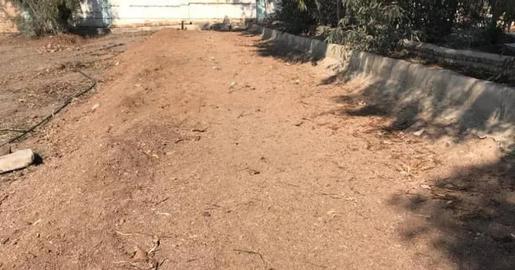
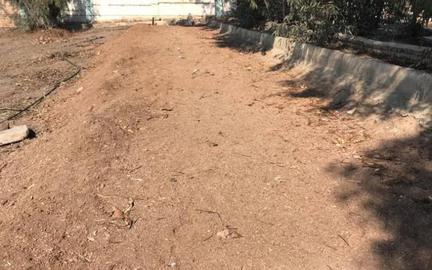

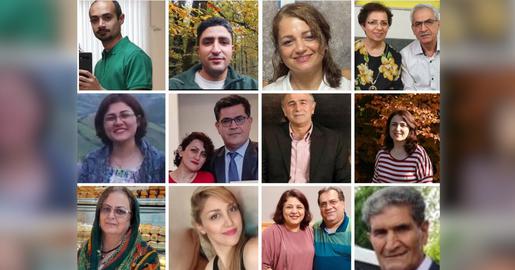
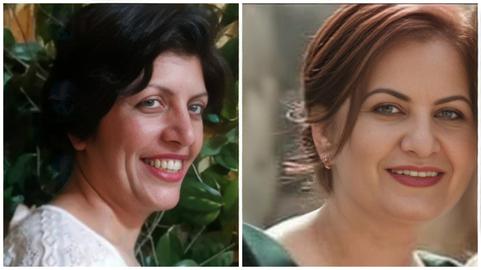

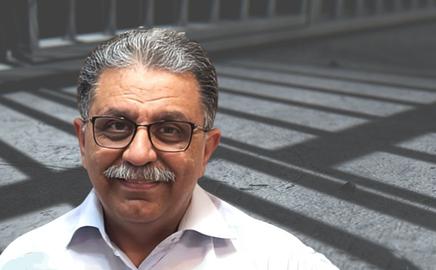

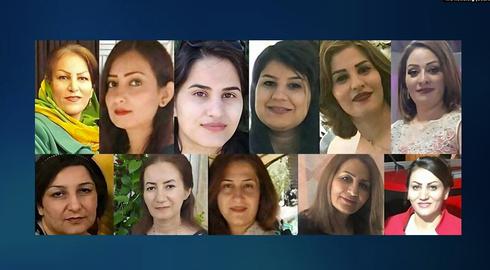
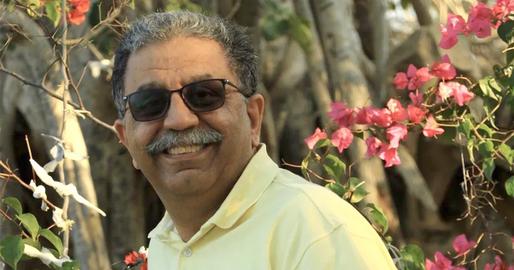


comments